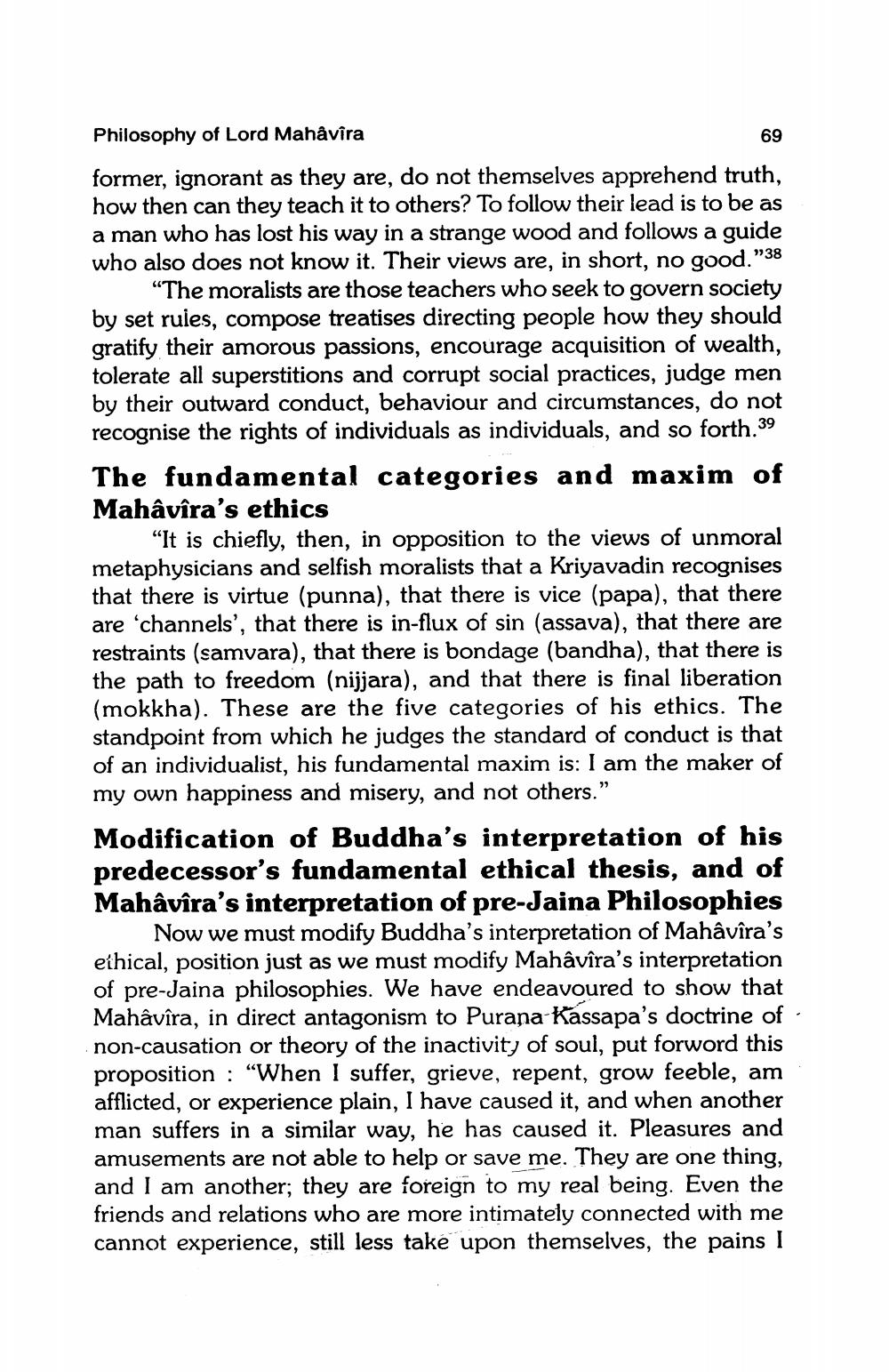________________
Philosophy of Lord Mahavira
former, ignorant as they are, do not themselves apprehend truth, how then can they teach it to others? To follow their lead is to be as a man who has lost his way in a strange wood and follows a guide who also does not know it. Their views are, in short, no good."38 "The moralists are those teachers who seek to govern society by set rules, compose treatises directing people how they should gratify their amorous passions, encourage acquisition of wealth, tolerate all superstitions and corrupt social practices, judge men by their outward conduct, behaviour and circumstances, do not recognise the rights of individuals as individuals, and so forth.39 The fundamental categories and maxim of Mahâvîra's ethics
69
"It is chiefly, then, in opposition to the views of unmoral metaphysicians and selfish moralists that a Kriyavadin recognises that there is virtue (punna), that there is vice (papa), that there are 'channels', that there is in-flux of sin (assava), that there are restraints (samvara), that there is bondage (bandha), that there is the path to freedom (nijjara), and that there is final liberation (mokkha). These are the five categories of his ethics. The standpoint from which he judges the standard of conduct is that of an individualist, his fundamental maxim is: I am the maker of my own happiness and misery, and not others."
Modification of Buddha's interpretation of his predecessor's fundamental ethical thesis, and of Mahâvîra's interpretation of pre-Jaina Philosophies Now we must modify Buddha's interpretation of Mahâvîra's ethical, position just as we must modify Mahâvîra's interpretation of pre-Jaina philosophies. We have endeavoured to show that Mahâvîra, in direct antagonism to Purana Kassapa's doctrine of non-causation or theory of the inactivity of soul, put forword this proposition: "When I suffer, grieve, repent, grow feeble, am afflicted, or experience plain, I have caused it, and when another man suffers in a similar way, he has caused it. Pleasures and amusements are not able to help or save me. They are one thing, and I am another; they are foreign to my real being. Even the friends and relations who are more intimately connected with me cannot experience, still less take upon themselves, the pains I




